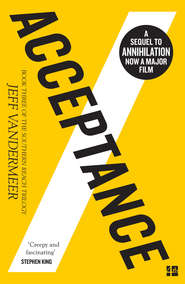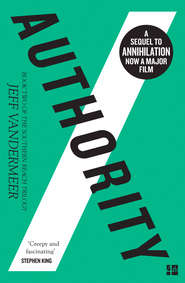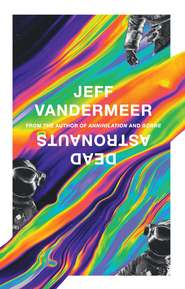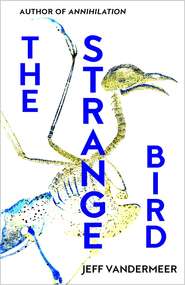По всем вопросам обращайтесь на: info@litportal.ru
(©) 2003-2024.
✖
Borne
Автор
Год написания книги
2018
Настройки чтения
Размер шрифта
Высота строк
Поля
I didn’t know how to take that. Had Wick coexisted with Mord in the Company? When Mord was smaller, when Mord couldn’t fly? But whenever I sensed Wick had let slip something important, he would stop abruptly, as if reading my sudden interest, and fall silent. That silence was no natural end.
It was more like a cutting-off point, the border beyond which Wick could not venture.
WHAT I DID TO OTHERS AND WHAT OTHERS DID TO ME
In the city, the line between nightmare and reality was fluid, just as the context of the words killer and death had shifted over time. Perhaps Mord was responsible. Perhaps we all were.
A killer was someone who killed for reasons other than survival. A killer was a madman or madwoman, not a person just trying to get through another day. Once, I hit a woman with a rock. We encountered each other while out scavenging on the same deserted street on the west side of the city. I had found a smooth piece of metal being absorbed by a glistening red piece of fleshlike plant. I didn’t know if Wick would find it useful, but I had never seen anything like it before.
As I turned a corner holding my prize, I came upon a woman walking. She was about fifty, wiry in the way survivors often are, gray hair hanging in a sheet, clothing a patchwork of gray and black.
She saw me and smiled. Then she saw what I held and her smile went away. “Give me that. That’s mine.” Maybe she meant “That’s going to be mine.”
I didn’t wait for her to get close enough to grapple with me. I knelt and picked up a rock with my free hand. As she rushed toward me from the middle of the street, I threw it at her, catching her in the forehead. She went limp, fell onto her side, breathing heavily. Then she got up and I threw another rock, catching her in the head again.
This time she staggered back, put her hands on her knees as she hunched down. I could see the bright red pooling from her head to the ground. She sat heavily in the rubble and put a hand to her head, stared at me as I dropped the third rock I’d picked up.
“I just wanted to look at it,” she said, puzzled as she kept putting a hand to her wound and taking it away again. Her eyes began to glaze over. “Just a look is all I wanted.”
I didn’t stay to help her or hurt her. I left.
Did she die? Did I kill her, and if I did, am I a murderer?
What happened between the woman and me wasn’t new, no matter how much amnesia we’ve suffered; it was as old as the old world and older still. The first rule, the only rule, is that you carry your safety with you the best you can—you protect yourself the best you can, and you have that right.
But one evening, three weeks after I found Borne, I let down my guard. A gang of children creeping through the moss and detritus caught the door behind me before it shut. Followed me silent down the corridors to my apartment, keeping to my same path to avoid the traps and pheromones and attack spiders. I didn’t notice because I was already thinking about Borne and wondering where I would find him this time.
Wick had left to tend to the farthest reach of his crumbling drug empire. None of my personal defenses—predator cockroaches in the hallway, the crab spiders embedded in the door, a good old-fashioned knife blade—could stop them.
Other than Mord, the poison rains, and the odd discarded biotech that could cause death or discomfort, the young were often the most terrible force in the city. Nothing in their gaze could tell you they were human. They had no memories of the old world to anchor them or humble them or inspire them. Their parents were probably dead or worse, and the most terrible and transformative violence had been visited upon them from the earliest of ages.
There were five of them, and four had traded their eyes for green-gold wasps that curled into their sockets and compounded their vision. Claws graced their hands like sharp commas. Scales at their throats burned red when they breathed. One wing sighed bellows-like out of the naked back of the shortest, the one who still had slate-gray human eyes. After a while, I wished he’d had wasps instead.
They smelled of brine and sweat and dust. They licked their lips and flexed their biceps like little conquerors. At that time, we did not know how they had become so changed, unless it was from contamination from the Company, and could not identify the new impulse rising nor where it came from.
I fought, but sometimes fighting isn’t enough. Showing aggression and resistance isn’t enough. You can’t blame yourself for being outnumbered, if you want to stay sane.
It was useless. I was useless. They tortured me in various unimaginative ways for hours. The shortest mostly just watched, stood beside the bed with his slate-gray gaze shining dull from huge eyes, the whites not as white as his pale skin. They were on drugs they’d probably found on a toxic waste heap.
Between my whimpers and screams and thrashing, as the sheets grew red and the other three howled their dominance, I kept saying to the gray-eyed child, “Don’t watch. Don’t watch.” I wanted to believe I was trying to spare him, but I was really trying to spare myself. It was too late for him.
When they began to tire of their games, they broke everything not of value, stood on one another’s shoulders to snuff out my fireflies.
Then they found Borne—he must have moved or somehow attracted their attention. Soon their interest in me faded. On their way out, they decided to take Borne with them—through one bleary, blood-encrusted eye I saw them snatch him up.
That was the first time I pleaded with them, when they took Borne. That was the first time I truly knew Borne was important to me. But it didn’t matter. They took Borne and left me in the dark, cheek laid open, face and arms and legs bleeding, some of the wounds deep. My skin burned. My skin was numb. My open flesh felt cold against the heat. I didn’t have the strength to get up.
The city had visited me, to remind me that I meant less than nothing to it, that even the Balcony Cliffs wasn’t safe. That every wire in my head connected to our defenses could be snapped, just like that.
¤
Time passed, and I existed in a quivering, exposed, horrible state. I was howling and shrieking, and there was nothing of restraint left in me; the pain took care of that. When I came to for the third or fourth time, my head lay upon Wick’s lap and he was looking down at me with a curious expression on his face. His body flickered a light green with his stress, a side effect of giving a home to the diagnostic worms. My body felt soft and warm as he tended to me, with an ache behind it that threatened to become all-consuming.
“I’m so sorry,” Wick said in a quiet voice as if talking to a corpse. The concern I hadn’t seen in him came through in his voice, so thick and heartfelt, as if he had been crying, that it transfixed me, became something horrifying. I didn’t need his devastation but his strength. “Just lie still. You shouldn’t feel pain for a while.”
I did feel pain, muted yes, but I felt it. But I nodded to give us both comfort, my vision blurring as I stared up at him. I could still make out the precise and beautiful architecture of his face, god help me. That still mattered to me.
He ran a diagnostic beetle over my body. It was old and worn, its carapace scratched, but its legs felt smooth, glossy. Everywhere it touched me, I felt an immediate, fast-fading glowing sensation. Wick had already closed up my wounds with the help of surgical slugs. I remembered the cool-cold sensation of their progress from the last time I had suffered an injury. My attackers had been creative, had cut me in patterns, writing words that had no meaning to anyone, least of all them. And so the movement of the slugs had retraced those paths, those words, given them a meaning by accident.
“I would hold you,” Wick said from far away, “but I’m afraid I would hurt you.”
Then I remembered they had taken Borne and wanted to ask Wick … what? To go after them? But Wick told me not to speak, said, “I’m sorry I wasn’t here. I’m sorry they got through.” He was in a different place than me, worried about different things.
“How badly did they hurt you?” he asked then, with a particular emphasis, and I knew what he was really asking. The question was medical but not medical. He had been re-creating my attack in his imagination and seeing the worst—and he needed to know just how invasive to be with his diagnostics.
“Just what you see,” I said, and there was a noticeable relaxation of Wick’s taut stance that somehow agitated me.
My attackers had been too single-minded or too inhuman to rape me. The one with the gray eyes, the oldest, had been about eleven years old. With sandy blond hair and delicate hands. I might not have told Wick the truth even if they had, but they hadn’t. Two of the wasp-eyes had shoved their tongues in my mouth as they cut me, but it had been as if trying to contaminate me with something. A metallic aftertaste still lingered on my tongue.
Now I was crying—just a steady stream of tears without the expression on my face changing at all. There is only so much you can take before you begin to feel that the effort to survive is too much to endure. It would have been better if I had been attacked in the street. It would have been better if I lay out there now in a heap than to lie in the middle of the Balcony Cliffs and have to absorb Wick’s guilt, his concern, his regard. To be seen, when all I wanted was to crawl away into a dark hole to die or recover from my wounds.
But I let Wick do his work and also told him how it had happened, so he would know how to bolster our defenses. I was alive, and from past experience I knew in time I would forget enough to again pretend that we could someday be free. Of the city, of Mord, of all of it. I don’t know if that was hope. Maybe it was just stubborn inertia.
“And they took Borne, too,” I said a little later, not sure my words were coming out right. Borne being gone was a concept I had to think around or I wouldn’t make it.
Wick frowned from the chair next to my bed. “But they didn’t take Borne.” He nodded toward the living room. “He’s right in there.”
Even through my numb discomfort, the beetle crawling across my torso, I felt an overwhelming confusion and relief.
“Did they bring him back?”
“I don’t think so. He was in the hallway by the door. Your attackers got away. I brought him back in.”
“Thank you,” I said, knowing that might not have been an easy decision.
“He’s bigger,” Wick said.
I said nothing. I didn’t dare. For the first time I realized Wick looked worried or preoccupied for reasons that might have nothing to do with me. I’d managed to keep Wick away from Borne for two straight weeks.
The beetle had finished its work.
Wick got to his feet. “You need to rest. I’ve brought food for the kitchen. I’ve put up better defenses. I have to go out for a while, but I’ll be back soon.”
I understood. He needed to make sure my attackers were really gone. He had to change the locks, make sure no one else could enter the same way. All of which meant eating up more resources we didn’t have, putting us both at risk much sooner.
The burn, the sting—the screaming agony—of what had happened would not return for hours, as if it was coming toward me from light-years distant. I extended my arm to touch Wick’s cheek, the edge of his mouth, but he was too far away.
“I should have been here,” he said.










